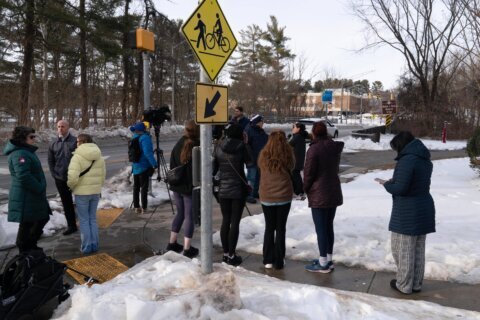By next spring, Maryland hopes to have an army of 800 trained tutors helping up to 60,000 students in the initial phase of the Maryland Tutoring Corps program.
The Maryland State Department of Education said the plan will harness $10 million in American Rescue Plan Funds to provide academic help to secondary students with a focus on math.
Maryland State Superintendent of Schools Mohammed Choudhury explained in a Zoom call announcing the program that he wanted the focus on secondary math “because mathematics has taken a huge hit. We have single digits, for example, in our middle school proficiency rates.”
The sense of urgency isn’t restricted to concerns about learning loss among secondary students, but Choudhury explained why the first phase of the tutoring program is focusing on secondary rather than elementary students.
“We know that it gets harder to intervene as they grow at the higher grade level, so now’s the time to do it,” said Choudhury.
He said the program would not require extending the school day, “though I am a fan of lengthening and extending time for students, especially students in high poverty settings,” saying that strategy worked in the Texas school district where he worked before his appointment as state superintendent in Maryland.
The key to success in tutoring programs, said Choudhury, is consistency: “The research is three times a week, 30 minutes (and) the same kids in a consistent manner.”
But not all of the state’s school systems will necessarily take part. “The challenge is not — put in high quality school day tutoring in all 1,400 schools in Maryland; it’s put it in where we truly need it,” said Choudhury.
He said his priority is leveraging federal funds to make sure that the program is sustainable over time. To that end, he’s seeking matching funds that could come from sources like private philanthropy, businesses and community organizations.
Under the Maryland Tutoring Corps grant program, grants would be made to local school districts or groups of districts, focusing primarily on middle school students in grades 6, 7 and 8, plus Algebra students. The emphasis would be on “underserved” students, including students identified as African American, economically disadvantaged, English language learners and special needs.
Grant applicants would be expected to come up with matching funds, either a 1-to-1 match or a 2-to-1 match for each dollar coming from the state’s education department.
Under the plan, it’s expected that the greatest number of tutors would come from colleges and universities.
U.S. Deputy Secretary of Education Cindy Martin and Maryland’s Secretary of Service and Civic Innovation Paul Monteiro also took part in the call. Monteiro said the program is “in line” with the mandates of his office, by partnering with community colleges, HBCUs “and all others” across the state to “support our young students as they increase their math proficiency.”








